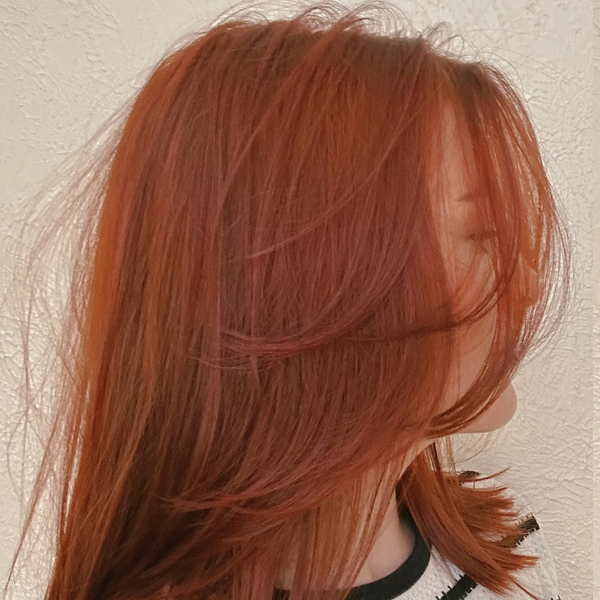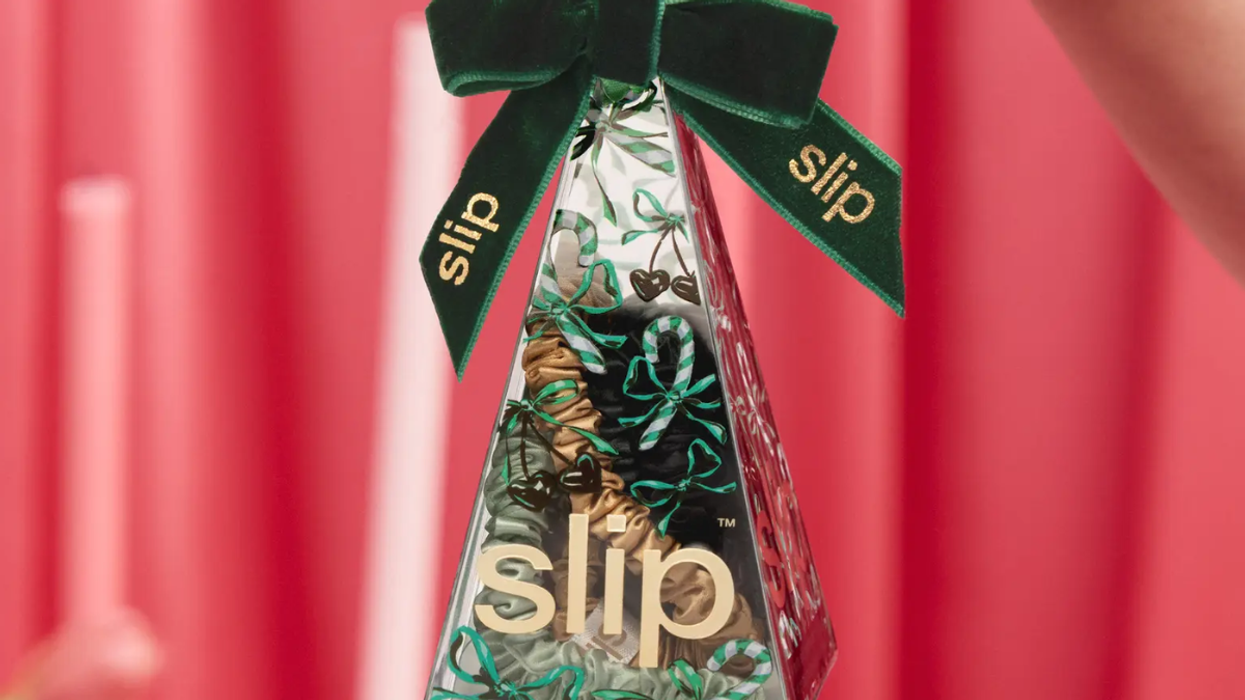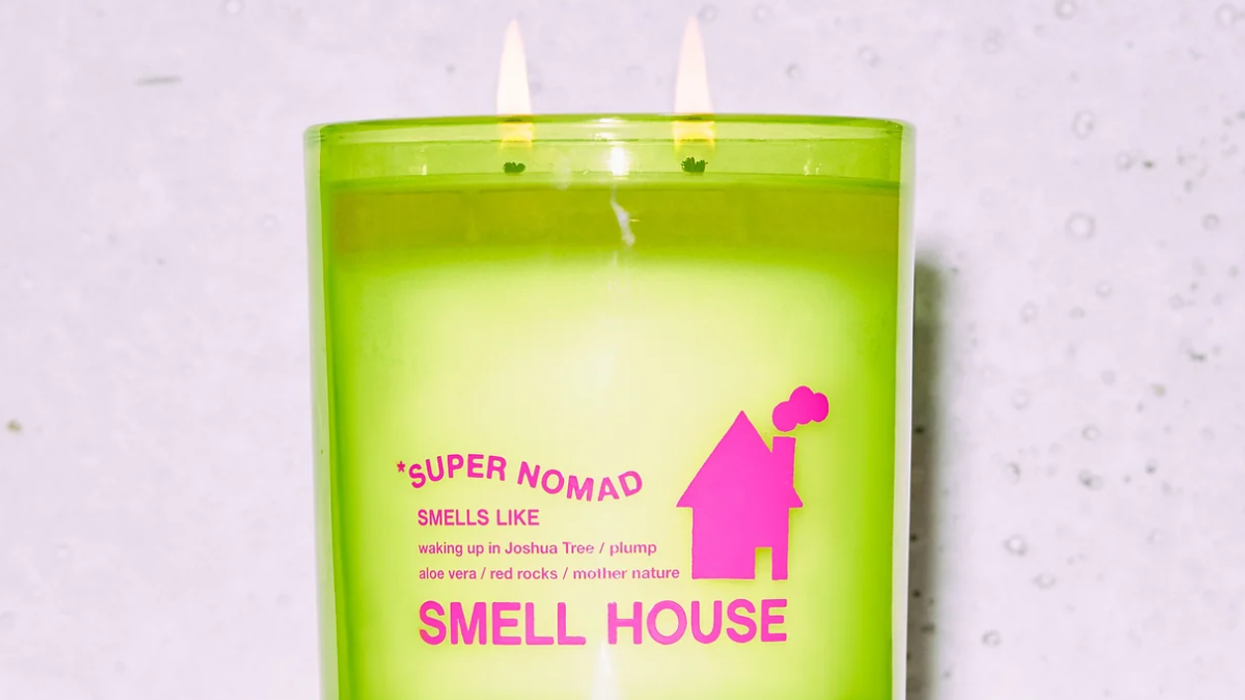Get gorgeous mermaid hair for the summer!
3 Easy Tips For How To Make Your Hair Grow Faster

Meaghan is a Chicago-based writer who covers fashion trends, celebrity style, beauty news, and lifestyle.
After studying journalism in college and working in PR post-grad, Meaghan has found a love for writing in the lifestyle space. She is always on the hunt for the next trend in the beauty and fashion landscape. Additionally, Meaghan likes to expand her focus to lifestyle and wellness topics. You might be familiar with her trend-focused pieces, fashion news reports, and product reviews.
When Meaghan isn’t working, you can find her walking on the Chicago lakefront, curating the perfect playlists, baking cakes, and trying every restaurant she can get a Resy for. Charlotte York is her style icon, and she is forever on the hunt for the perfect Cosmopolitan.
There’s nothing worse than waiting for your hair to grow. It honestly feels like watching paint dry at a certain point, dragging on and on while you hope for the best — and the length. And while you may have tried all the tricks in the book, ultimately hair growth depends on a lot of things, like genetics, our daily habits, our diets, and more.
I spoke with Dr. Whitney Tolpinrud, Medical Director of Curology Inc., to discuss the reasons your hair may be slow to grow and how to turn it around. From adjusting your diet and your hair care routine to experimenting with new treatments and making a few lifestyle changes, there are many ways to encourage hair growth.

Photo by Anna Steckmann/Dupe
First, let’s address why your hair may be growing too slowly for your liking. Dr. Tolpinrud shared the top things that may be affecting your growth:
- Genetic Factors: Genetic predisposition can play a major role in determining the rate of hair growth. Some of us naturally have slower hair growth due to our genes.
- Nutritional Deficiencies: A lack of essential nutrients like vitamins, minerals, and proteins in the diet can positively affect hair growth. Adequate intake of nutrients is necessary for healthy hair growth. In general, it is best to focus on a well-balanced diet. Excess nutrients can also lead to hair loss.
- Hormonal Imbalances: Hormonal imbalances, such as thyroid disorders or hormonal changes during pregnancy, can affect hair growth and lead to slower growth.
- Environmental Factors: Exposure to harsh chemicals, heat styling tools, and excessive tension on the hair, like tight hairstyles, can damage your hair follicles and slow hair growth.
- Medical Conditions: Certain medical conditions, like autoimmune disorders and chronic illnesses, can disrupt the hair growth cycle and result in slower hair growth.

Photo by Karolina Grabowska/PEXELS
Another thing that can affect your hair growth? Some common things in our hair products.
“In general, it is best to avoid harsh chemicals and those that are commonly associated with contact dermatitis. Some hair dyes, particularly those containing paraphenylenediamine (PPD), can cause allergic contact dermatitis, which may hinder hair growth,” Dr. Tolpinrud shared. “Hair bleaches that contain ammonium persulfate, a skin irritant, can potentially affect hair growth. Chemical hair straighteners can be sensitizing and may have an impact on hair growth.” It’s best to consider your hair growth goals before starting out new products or routines that may cause damage.
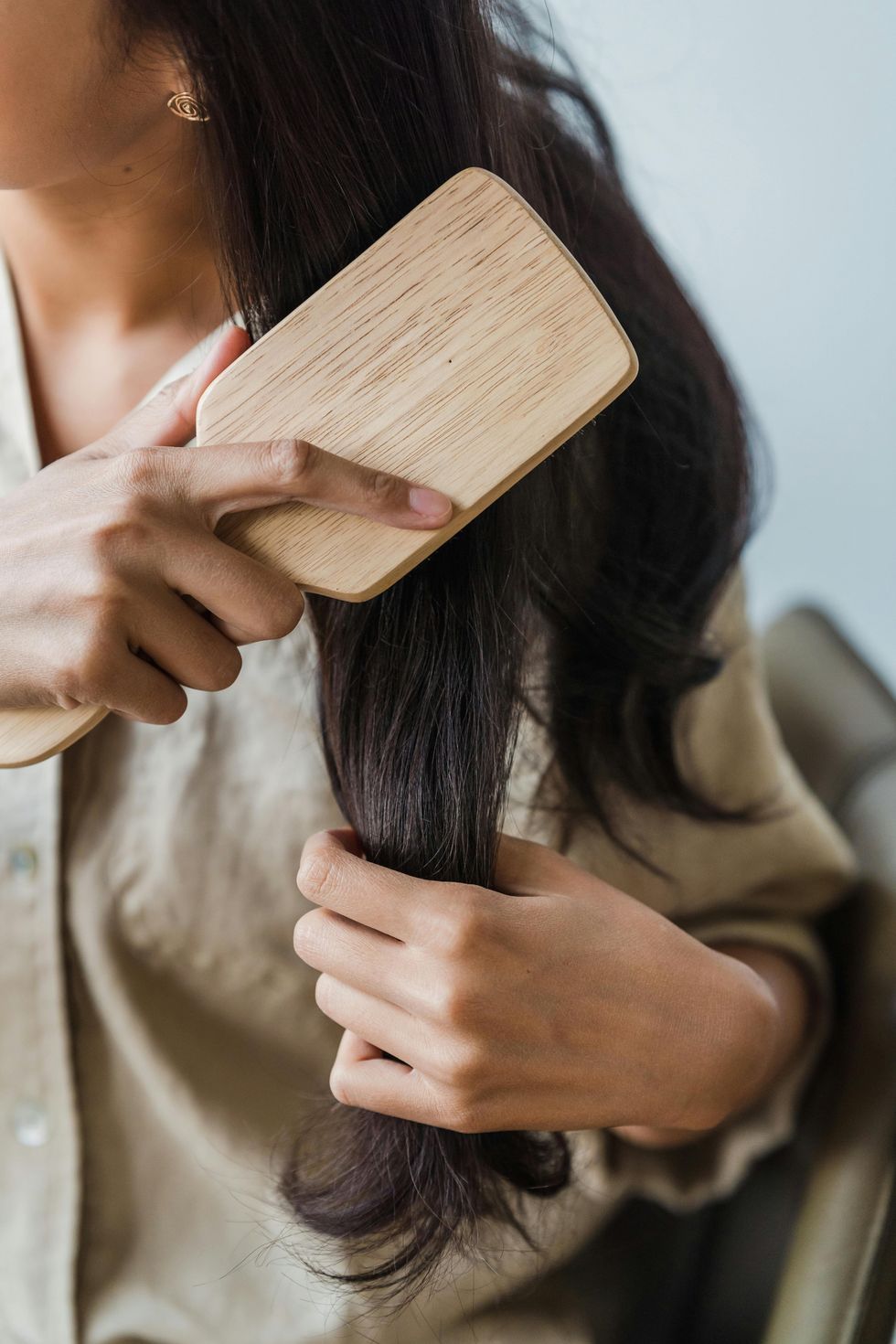
Photo by Greta Hoffman/PEXELS
Just because you’re dealing with slow growth, doesn’t mean it’s always going to be that way. When you're looking to get your locks growing, Dr. Tolpinrud shared her top considerations.
- Scalp Care: Prioritize a clean and healthy scalp by staying consistent with your hair washing routine. Dr. Tolpinrud recommends using a gentle shampoo and conditioner for the best results.
- Gentle Hair Handling: Your hair is fragile! Remember to be gentle when styling and even brushing. Avoid tight hairstyles that pull on the hair, and use wide-toothed combs or brushes with soft bristles to detangle your hair.
- Regular Trimming: As I mentioned previously (link to hair trimming article), keeping up with regular trims helps to get rid of split ends and allow your hair to grow stronger.
- Avoid Excessive Heat: We all know this one, but one of the best ways to keep your hair healthy and growing is reducing the amount of heat you use. Limiting the use of heat styling tools like flat irons, curling irons, and blow dryers, will encourage healthy growth.
- Protect Hair from UV Damage: Yes, the sun’s UV rays can even affect your hair. When you’re out this summer, grab a hat or use hair products that contain UV protection.
In addition to these new habits you can start, Dr. Tolpinrud also recommends investing in products to encourage healthy hair growth. Her top pick? Curology’s Hair FormulaRx, which includes prescription ingredients that are clinically proven.
“Each Hair FormulaRx contains three active ingredients for a multi-action approach to treatment. The active ingredients and ingredient strengths in the Hair FormulaRx differ depending on the patient’s medical history, hair goals, and presentation,” explained Dr. Tolpinrud. “This personalized touch ensures that the treatment is tailored to meet the individual needs of each patient, setting it apart from generic off-the-shelf options.”
Dr. Tolpinrud does work for Curology, but there are also many ways to promote hair growth that seemingly don’t have anything to do with your hair. Dr. Tolpinrud recommends eating a high protein diet, utilizing essential oils, vitamins, and using a scalp massager. Here's what she suggests!

Photo by Alyssia Rose/Dupe
1. Eat a high protein diet.
“Maintaining a healthy, balanced diet rich in protein along with essential vitamins and minerals is crucial for hair growth. Include a variety of fruits, vegetables, lean proteins, and whole grains to ensure your hair receives the nutrients it needs,” said Dr. Tolpinrud. “It is important to focus on a well-balanced diet.”
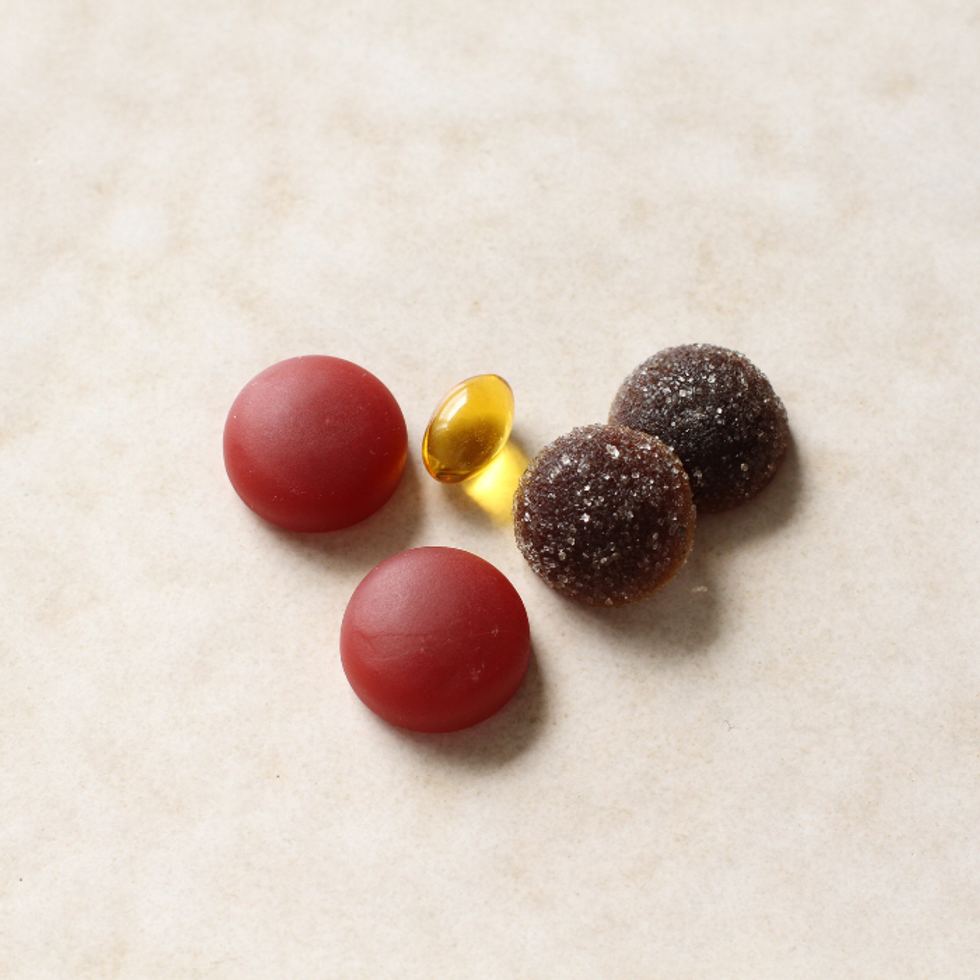
Photo by Cora Pursley/Dupe
2. Take more vitamins.
Several vitamins play a role in promoting hair growth. Here are some vitamins that are commonly associated with hair health and growth:
- Vitamin A is essential for the growth of all cells, including hair cells. It helps in the production of sebum, which moisturizes the scalp and keeps the hair healthy.
- Biotin (Vitamin B7) is often recommended for promoting hair growth and improving hair health. It is involved in the production of keratin, a protein that makes up the structure of hair.
- Vitamin C is an antioxidant that helps protect hair follicles from damage caused by oxidative stress. It also plays a role in collagen production, which is important for hair strength and structure.
- Vitamin D is important for hair follicle cycling and hair growth. It helps in the activation of hair follicles and plays a role in the hair growth cycle.
- Vitamin E is an antioxidant that helps protect the scalp and hair follicles from oxidative stress. It promotes blood circulation, which is important for delivering nutrients to the hair follicles.
My favorite hair supplement? Habit Hair, Skin & Nails, which includes vitamins A, C, Biotin, Hyaluronic Acid, Rosehip and Aloe Vera. But there are plenty of supplements with these key vitamins you can find at your local health store!
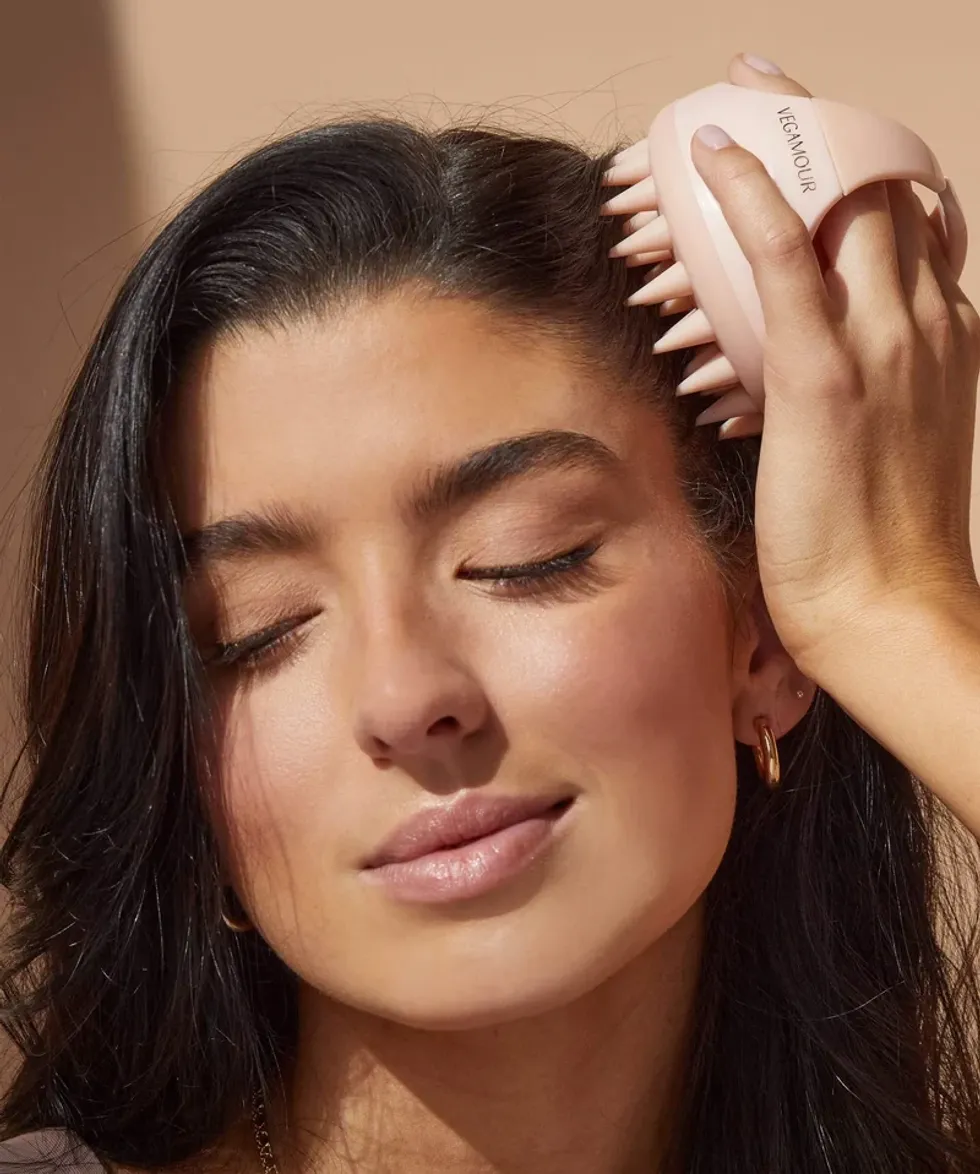
Photo via Vegamour
3. Use a scalp massager.
Reach for a scalp massager to improve scalp health and potentially indirectly support hair growth. Scalp massagers can increase blood circulation, provide stress reduction, help with product absorption, and more.
Looking for more beauty advice? Be sure to sign up for our weekly email newsletter!
Brit + Co may at times use affiliate links to promote products sold by others, but always offers genuine editorial recommendations.
Header image by Lottie Nielsen/Dupe



